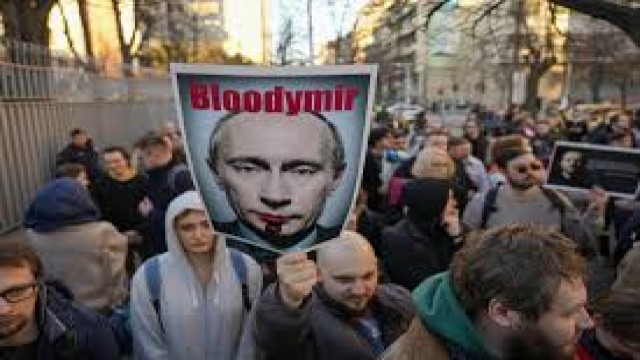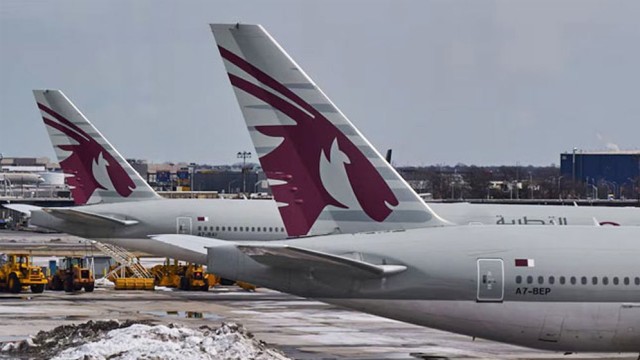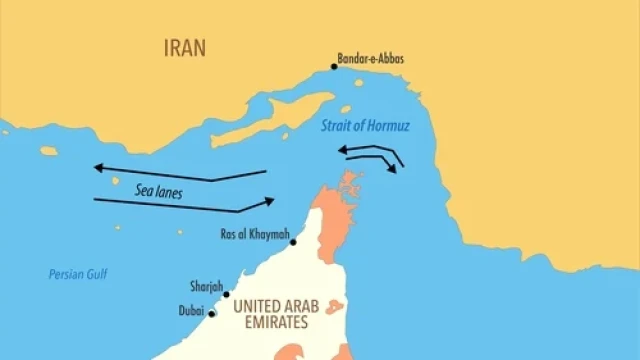
Photo: Collected
"He is once more testing the resolve of the West as the second anniversary of the (Ukraine) war approaches."
Russian President Vladimir Putin is ignoring Western concerns as he gets ready to prolong his 24-year rule in an election next month as police around Russia continue to quell any protest attempts, despite the global outcry over the death of top Kremlin opponent Alexei Navalny.
Because of Navalny's passing and the Kremlin's recent actions in Ukraine, the United States and its allies are considering imposing more sanctions on Russia. However, considering that several past rounds of sanctions have failed to deter the ruthless Kremlin leader, many question what the West can realistically do to stop him while U.S. funding for Ukraine remains stalled in Congress and NATO partners in Europe strive to fill the void. In a YouTube post, Mark Galeotti, the chairman of the London-based Mayak Intelligence consulting group, stated that for Russia, currently among the most sanctioned countries in the world, "there really isn't the room for any great value in additional sanctions."
Galeotti asserted that the West had to put more effort into assisting Navalny's friends and giving common Russians access to information sources that refute Kremlin misinformation.
According to Galeotti, who saw Navalny's passing as another step in Putin's shift from "hybrid authoritarianism" to "brutal thuggish despotism," such initiatives are crucial, particularly at this point. After a fierce four-month fight, the Russian military recently forced Ukrainian soldiers to flee from the strategic eastern bastion of Avdiivka. The United States and its NATO partners have been considering taking more action to defend Ukraine. In order to pressure Putin to yield, the allies spoke about measures to make going to war with Russia more expensive.
In an interview with former Fox News personality Tucker Carlson last week, the 71-year-old leader declared that the West will "sooner or later" be compelled to make a settlement – on his terms — and that he would not give up any of his victories.
According to Nigel Gould-Davies, a senior fellow for Russia and Eurasia at the International Institute for Strategic Studies in London and a former British ambassador to Belarus, Navalny's execution demonstrates Putin's "complete ruthlessness and disdain... for both Western and international opinion." On Friday, Russia declared Navalny dead, coinciding with the gathering of Western leaders in Munich for a security summit.
Gould-Davies stated that Putin is "throwing down a gauntlet to the West." "He is once more testing the resolve of the West as the second anniversary of the (Ukraine) war approaches."
According to Gould-Davies, Navalny's passing should act as a "wake-up call" to American Republicans in Congress who are against Ukraine aid and should motivate other European NATO partners to increase their support for Ukraine.
In the end, he remarked, "it depends on the lessons that the West draws."
However, the speaker of the US House on Friday did not seem to be persuaded by Navalny's passing to support a $61 billion assistance package for Ukraine, which is thought to be essential to the country's triumph.
Putin, who has ruled Russia for the longest period of time since Soviet dictator Josef Stalin, is currently cruising toward another six years in office thanks to a campaign that has three token opponents nominated by pro-Kremlin groups. Election officials forbade liberal Democrat Boris Nadezhdin from standing, whose main campaign theme was stopping the conflict in Ukraine.
Even yet, Gould-Davies said that although there was little question that Putin would win the election, Navalny's passing showed "how much he saw Navalny as a threat."
“The way the Kremlin has conducted that election campaign so far suggests that they are not confident,” he said, adding that “even from prison, Navalny managed to get his voice out.”
Navalny's death just weeks before the March 15-17 presidential election possibly marked “the final act of the dismantling and crushing of any semblance of Russian organized opposition” ahead of the vote, Gould-Davies said.
Despite his assured victory next month, Putin still fears Western interference in the election and viewed Navalny as “an adversary manipulated by the West to undermine national and state interests,” said Tatiana Stanovaya, senior fellow at the Carnegie Russia Eurasia Center.
“He sincerely believes that the West would and will use the moment to undermine the stability and to afflict political damage to his campaign,” she wrote in a commentary. “That will push him to take an even more hawkish, more repressive approach to any hostile manifestation, which he may link to external attempts to interfere. This may specifically create a more restrictive approach to the media and social networks.”
Navalny, who died at age 47, emerged as a major threat more than a decade ago, playing a key role in galvanizing massive street protests against Putin's rule in Moscow in 2011-2012 and running a successful campaign to expose government corruption.
For many Russians, Navalny was a powerful symbol of hope, Galeotti said, conveying even from his remote Arctic prison a vision of the “beautiful Russia of the future” — a slogan in defiance of the Kremlin’s message to Russians to “just survive, just keep your head down.”
In 2020, Navalny narrowly survived nerve agent poisoning in Siberia that he blamed on the Kremlin. He recovered in Germany but was immediately arrested upon his return in January 2021. He remained in custody after that, convicted three times and handed a 19-year prison term on charges of extremism.
In response to allegations made by Western politicians accusing the Kremlin of being behind Navalny's death, Dmitry Peskov, a spokesperson for the Kremlin, called them "outrageous and inadmissible." Putin remained nothing.
However, Western leaders treat any such remarks from the Kremlin with the same mistrust that they applied to Yevgeny Prigozhin's death in an aircraft accident, two months after his forces briefly overthrew the Kremlin. Most people believed that the August meltdown of last year was the Kremlin's payback for the mutiny, which constituted the biggest threat to Putin's authority since his victory in 2000.
Similar to Prigozhin's death, Gould-Davies claimed that Navalny's passing “shows how completely ruthless” Putin is.
End//voice7news.tv































Comment: